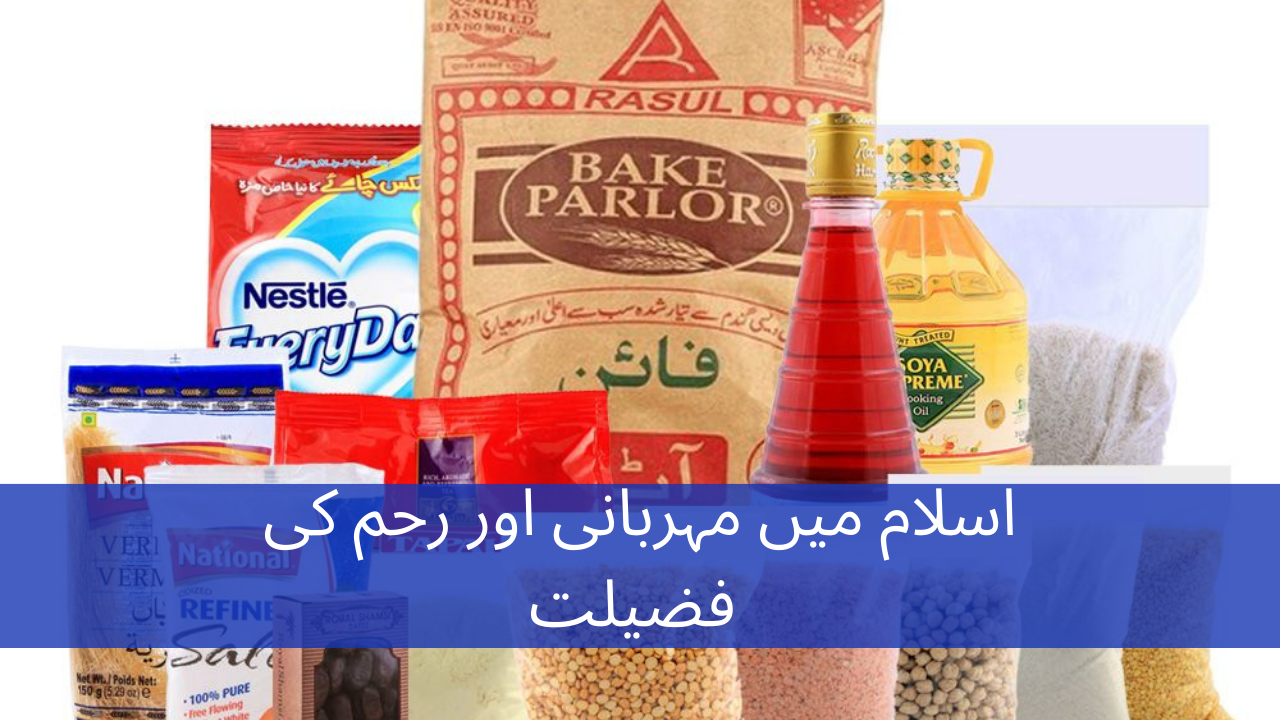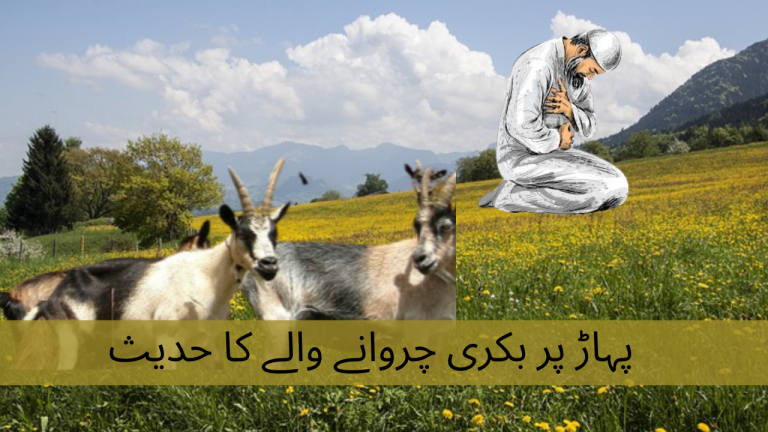Islam May Mahrbani Or Raham Ki Fazilat K Baray May Rasoolullah ka Farman

Islam May Mahrbani Or Raham Ki Fazilat K Baray May Rasoolullah ka Farman
رواه مسلم (وكذلك البخاري والنسائي)
About This Hadees in Araib , Urdu and English
This hadith, narrated by Abu Mas’ud al-Ansari (may Allah be pleased with him), is about a man who was held accountable for his deeds in the Hereafter. Despite not having done many good deeds, one positive aspect was noted about him: he used to interact with people and was kind to them, even though he was in difficult circumstances.
Here’s the translation of the hadith in Arabic, Urdu, and English:
Arabic
عَنْ أَبِي مَسْعُودٍ الْأَنْصَارِيِّ، رَضِيَ اللَّهُ عَنْهُ قَالَ: قَالَ رَسُولُ اللَّهِ صَلَّى اللَّهُ عَلَيْهِ وَسَلَّمَ: ” حُوسِبَ رَجُلٌ مِمَّنْ كَانَ قَبْلَكُمْ، فَلَمْ يُوجَدْ لَهُ مِنْ الْخَيْرِ شَيْءٌ، إِلَّا أَنَّهُ كَانَ يُخَالِطُ النَّاسَ، وَكَانَ مُوسِرًا، فَكَانَ يَأْمُرُ غِلْمَانَهُ أَنْ يَتَجَاوَزُوا عَنْ الْمُعْسِرِ، قَالَ قَالَ اللَّهُ : نَحْنُ أَحَقُّ بِذَلِكَ مِنْكَ، تَجَاوَزُوا عَنْهُ”
Urdu (اردو)
ابو مسعود الانصاری (رضی اللہ تعالیٰ عنہ) سے روایت ہے کہ رسول اللہ صلی اللہ علیہ وسلم نے فرمایا: “ایک شخص کو حساب دینے والے نے پیش کیا جو تم سے پہلے تھا، اس کے لئے اچھائی کا کچھ بھی سبب نہ تھا مگر اس کا ایک خوبصورت صفت یہ تھی کہ وہ لوگوں سے ملاوٹ کرتا تھا اور وہ محتشم تھا، وہ اپنے غلاموں سے کہتا تھا کہ وہ معسر افراد کو چھوڑ دیں، اس پر اللہ تعالیٰ نے فرمایا: ہم اس سے زیادہ اہلی ہیں، تم اس کو معاف کردو۔”
English
Narrated by Abu Mas’ud al-Ansari (may Allah be pleased with him): The Messenger of Allah (peace be upon him) said, “A man was brought to account who lived before you. No good deeds were found for him except that he used to interact with people and was kind to them, even though he was in difficult circumstances. He used to command his servants to forgive those in debt. Allah said, ‘We are more deserving of this than you; forgive him.'”
This hadith emphasizes the importance of kindness, compassion, and forgiveness, even in difficult circumstances, and highlights the rewards of such behavior in the sight of Allah.
Benefits Of This Hadees
The hadith you mentioned carries several important lessons and benefits for Muslims:
Kindness and Compassion
- It underscores the significance of being kind and compassionate towards others, even when one is facing difficulties. This kindness is not only commendable but also has a positive impact on a person’s character and interactions with others.
Forgiveness
- The hadith encourages forgiveness, especially in financial matters. It teaches us that forgiving someone’s debt or financial hardship is a virtuous act, and it’s pleasing to Allah. This fosters an atmosphere of goodwill and unity within the community.
Human Interaction
- The hadith highlights the importance of engaging with and interacting with people. Building relationships and being social, especially in a positive and helpful manner, is valued in Islam. It promotes social cohesion and helps strengthen the bonds within the community.
Reward from Allah
- The hadith conveys the message that Allah greatly values acts of kindness, even if they seem small or insignificant. It demonstrates that Allah is forgiving and merciful and rewards those who show kindness and compassion towards others.
Humility
- The person mentioned in the hadith was not wealthy or powerful, but he still tried to help those in need. This serves as a lesson in humility, reminding us that acts of kindness and compassion are not limited to those in privileged positions but can be performed by anyone.
Intercession
- The hadith suggests that the act of kindness and forgiveness mentioned in it could potentially serve as a form of intercession on the Day of Judgment. This implies that such actions may help a person in their own accountability before Allah.
Community Building
- Acts of kindness, forgiveness, and helping those in need contribute to building a strong and harmonious community. When individuals within a community practice these values, it fosters a sense of unity and cooperation.
Overall Moral Character
- The hadith encourages Muslims to cultivate a strong moral character by practicing virtues such as kindness, compassion, and forgiveness. These qualities are not only essential in Islam but are also universally admired traits.
In summary, this hadith teaches Muslims to be kind, compassionate, and forgiving, even in the face of personal difficulties. It emphasizes the importance of these qualities in Islam and suggests that such actions are highly valued by Allah. Ultimately, these values contribute to the development of a strong and harmonious Muslim community.
Concluion
In conclusion, the hadith narrated by Abu Mas’ud al-Ansari carries several valuable lessons for Muslims. It highlights the significance of kindness, compassion, and forgiveness, even in challenging circumstances. The benefits of this hadith include fostering good moral character, building strong and harmonious communities, and emphasizing the importance of engaging positively with others.
It reminds Muslims that acts of kindness and compassion, no matter how small, are highly regarded by Allah and can potentially serve as a form of intercession on the Day of Judgment. Overall, this hadith encourages Muslims to embody these virtues in their daily lives, contributing to their personal growth and the betterment of their communities.





